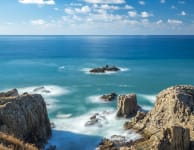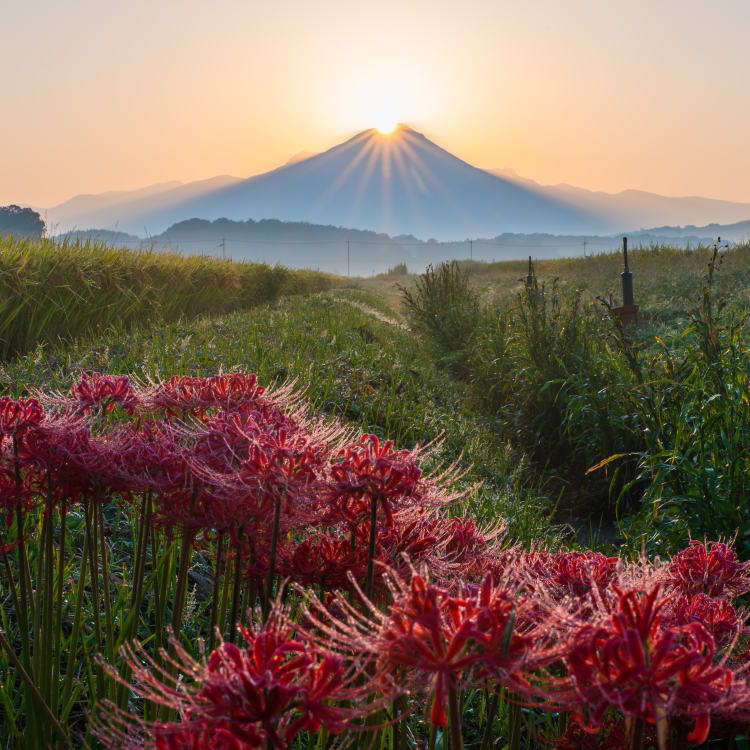

GESCHICHTE The Art and Beauty of Japan’s San’in Region
Travel beyond Tokyo to experience the beauty and culture of western Japan
Tokyo offers an ideal introduction to Japan's rich cultural heritage and its artistic traditions. The vibrant city has a range of galleries and museums, and cutting-edge installations. Make time for traditional art at the Nezu Museum in Aoyama, see the latest blockbuster exhibition at the National Art Center in Roppongi, and enjoy immersive experiences at TeamLab Borderless in Odaiba and TeamLab Planets in Toyosu.
Venture beyond the bright lights of Tokyo for a deeper exploration of Japan's visual treasures. Haneda Airport is a convenient starting point, connecting Tokyo with every corner of the nation. Okayama is just over an hour by air from Haneda, or a little over three hours from Tokyo Station by Shinkansen. The compact castle city is ideally located for exploring the Kansai and San'in regions of Japan, which include some of the country's oldest historical sites and most innovative museums. Two passes will help you make the most of the area: the JR West Sanin Okayama Area Pass offers unlimited travel in Okayama, Shimane and Tottori; and the Discover Another Japan Pass (DAJP) can be used for free and discounted entry to museums and attractions in the area.

Okayama—traditional design and modern art

View the works of many famous western artists at the Ohara Museum of Art.
Okayama Prefecture is on the Seto Inland Sea and in the heart of western Japan. The city of Okayama is compact and easy to explore on foot. Around Okayama Station there are several modern hotels and a large shopping mall. Okayama Korakuen Garden (covered by the DAJP) is beside Okayama Castle, and is considered one of the Three Great Gardens of Japan. Stroll meandering paths around ponds and tea houses and even a tea plantation. The garden was designed over 300 years ago, and every angle is designed to delight the viewer.
Kurashiki is around 15 minutes by train from Okayama Station, and the journey is covered by the JR-West Sanyo San'in Area Pass. The Kurashiki Bikan Historical Quarter is a beautiful, traditional townscape with a tree-lined canal running through its center. Kurashiki prospered in the seventeenth century as a merchant town, and the canal was used to transport goods. There are many storehouses along the canal which have been repurposed as stylish stores, restaurants and boutique accommodations. Beside the canal, Ohara Museum of Art (covered by the DAJP) has a large collection of art from European to ancient Oriental, ancient Egyption, and contemporary Japanese. Among the collection are works from famous artists such as Monet, Matisse, Picasso, and Pollock.
Izumo—land of the gods

Sunsets on Inasa Beach have to be seen to be believed.
Journey from coast to coast and discover Shimane, on the Sea of Japan. From Okayama Station, take the Limited Express Yakumo or Limited Express Sunrise Izumo train (covered by the JR-West Sanyo San'in Area Pass), to Izumoshi Station. The three-hour journey takes you through verdant, mountainous landscapes. Izumo Taisha Grand Shrine is considered Japan's oldest Shinto shrine, though there are no records of when it was first built. Every year for a week in November, all eight million Shinto deities are said to gather at Izumo Taisha, an indication of the shrine's importance in the Shinto tradition. The wooden halls, rebuilt in 1744 are impressive, and the sacred straw ropes (shimenawa) which hang in front of the main hall and sacred dance hall are awe-inspiring. The largest shimenawa in Japan is in front of the kaguraden sacred dance hall. It is over 13 meters long, weighs almost five tons and is eight meters wide at its thickest point and is re-made every six to eight years.
Sunsets in Izumo are legendary. See the sun sink into the sea from Inasa Beach near Izumo Taisha, or travel about 20 minutes north by bus or taxi to Izumo Hinomisaki Lighthouse , another popular sunset spot. The lighthouse was built here on the westernmost tip of the Shimane peninsula in 1903, and is the tallest lighthouse in Japan at 43.65 meters. You can use your Discover Another Japan Pass (DAJP) for entry, and enjoy sweeping views of the sea. From here it is a short walk to Hinomisaki Shrine, which venerates Amaterasu, the sun goddess.
Matsue—a lakeside castle town

Witness the majesty of Matsue Castle.
The train skirts the eastern shore of Lake Shinji on the 45 minute trip from Izumoshi Station to Matsue , a pretty castle town. Here you can see the stunning sunset of Lake Shinji, take a stroll along the historic canals, and even visit the area's namesake, Matsue Castle. The castle was completed in 1611 and is one of the few castles in Japan to have its original main tower. The Discover Another Japan Pass (DAJP) includes entry to the castle. One of the best ways to see the castle is on a cruise around the moat (Matsue Horikawa Pleasure Boat, covered by the DAJP). Sightseeing boats putter along the moat and connecting canals, past the castle walls and historic sites including the former home of writer Lafcadio Hearn. The Lakeline Bus runs a loop from Matsue Station past the major sites.
Exploring the art of nature

The Adachi Museum of Art is home to one of Japan's most magnificent gardens.
Tamatsukuri Onsen on the south shore of Lake Shinji is the ideal destination for a relaxing stay. The hot-spring waters here have been revered for over a thousand years for their skin-softening properties. Choose from a range of traditional ryokan inns and modern hotels in the area, including Tamatsukuri International Hotel Rivage Choraku , with views across the lake. The onsen resort is conveniently located for visiting the Adachi Museum of Art , a 20-minute ride by free shuttle bus from Yasugi Station. The museum houses a world-class collection of Japanese art and is surrounded by a 16.5-hectare garden, which has been declared Japan's best garden for the last 18 years by the international Journal of Japanese Gardening. The museum entrance fee is covered by the DAJP.
Daisen-Oki National Park encompasses Mt. Daisen and some of Japan's most dramatic coastline, with highlights including Red Cliff and the Kaka no Kukedo Sea Caves. Amongst the spectacular nature, the Shoji Ueda Museum of Photography holds its own. The museum, which is covered by the DAJP, is dedicated to the works of pioneering photographer Shoji Ueda (1913–2000), who was born nearby in Sakaiminato, Tottori Prefecture. The bold, postmodernist concrete structure by architect Shin Takamatsu perfectly frames views of Mt. Daisen.

Explore the history of Detective Conan and his creator at the Gosho Aoyama Manga Factory. © Gosho Aoyama/Shogakukan Inc. Manga Factory
About 40 minutes by car from the Shoji Ueda Museum of Photography, you can find one of Japan's most popular manga characters, Detective Conan. Gosho Aoyama Manga Factory (covered by the DAJP) offers fascinating insights into the creative mind of the manga artist Gosho Aoyama, who grew up here in Hokuei Town. The Conan experience begins at Yura Station, renamed Conan Station, as visitors stroll past Conan-related statues on the way to the museum. Enjoy interactive exhibits including Conan's famous voice-changer bow tie, and a reproduction of Aoyama's studio. Of course there is a must-visit shop, offering rare souvenirs and Detective Conan memorabilia. Diehard fans should also visit Tottori Airport in Tottori City, which is decorated with color objects of the character from the popular manga.
Sakaiminato—delicious seafood and mysterious creatures

Sakaiminato is a seafood paradise. Try freshly caught Matsuba snow crab in season.
The port town of Sakaiminato at the far western edge of Tottori Prefecture, is a haven for seafood lovers. The town is proud of its status as one of Japan's largest fishing ports, landing catches of precious Matsuba snow crab , Natsuki rock oysters and Pacific bluefin tuna. At the Sakaiminato Sakana Center fish market, you can have your pick of the day's catch, cooked to order, or visit one of the nearby restaurants to enjoy the freshest sushi and sashimi. Sakaiminato has another claim to fame, which is evident as soon as you walk down Mizuki Shigeru Road from Sakaiminato Station to the town center. The street is lined with 177 bronze statues of characters by Mizuki Shigeru (1922–2015), including those from the popular manga series Gegege no Kitaro. Shigeru Mizuki has created various artworks with the motif of traditional Japanese yokai. The Mizuki Shigeru Museum (covered by the DAJP) is a must-see for fans of manga and of Japan's rich mythology. The museum includes artworks, large dioramas and videos.

Stroll Mizuki Shigeru Road to see bronze figures of the famous manga artist's popular characters. ©Mizuki Productions
Kaike Onsen is a good base for exploring both Daisen-Oki National Park and Sakaiminato. Enjoy views of the sea and Mt. Daisen at many of the hotels and ryokan inns. The Kaike Yumigahama Cycling Path runs from Yonago to Sakaiminato, offering easy access to the area's beaches and hot springs. Visitors can rent bicycles at local tourism centers including Cog Station Kaike.
Western Tottori Prefecture is served by Yonago Kitaro Airport , with daily flights to Tokyo. The airport also connects Tottori with Seoul, Shanghai and Hong Kong. At the airport, there are stained glass windows and objects with the motif of Shigeru Mizuki's popular manga characters. There are many characters everywhere.
Getting Around

Matsue's Lakeline Bus
Shimane and Tottori prefectures are well-connected to major cities like Tokyo, Osaka and Okayama by train, road and air. The JR West Sanin Okayama Area Pass offers visitors unlimited travel for four days on JR trains and some buses between Okayama, Shimane and Tottori. It includes the Lakeline Bus in Matsue and bicycle rental at participating rental stores. The Discover Another Japan Pass (DAJP) is a convenient app to find information about cultural attractions and buy admission passes to museums and attractions in the San'in and Kansai regions. It connects with Google Maps for easy navigation.
Business hours
Due to measures to prevent the spread of coronavirus, business hours and conditions may be subject to change; please check with the venues before visiting.












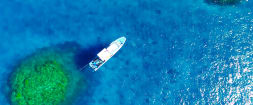
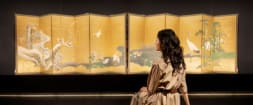





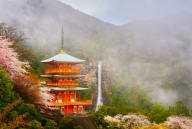











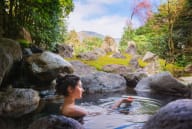








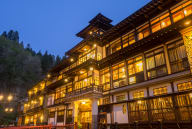


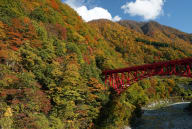





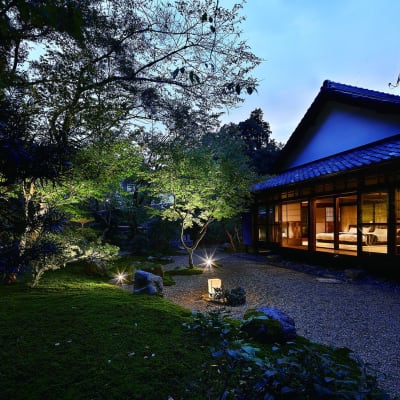

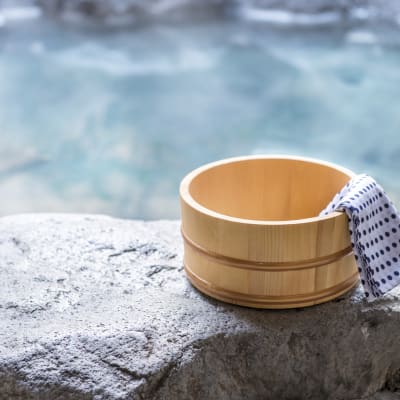






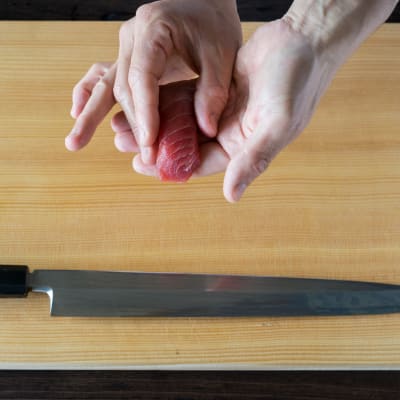
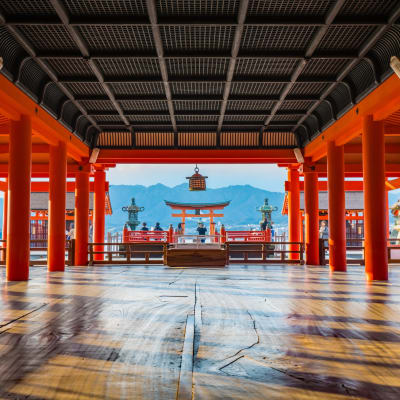
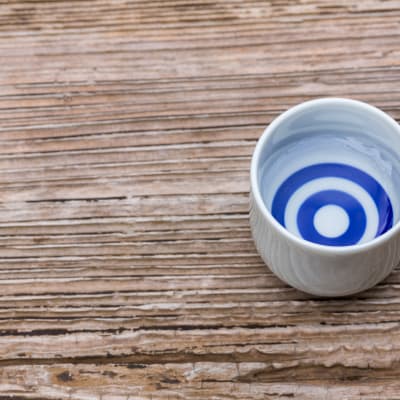


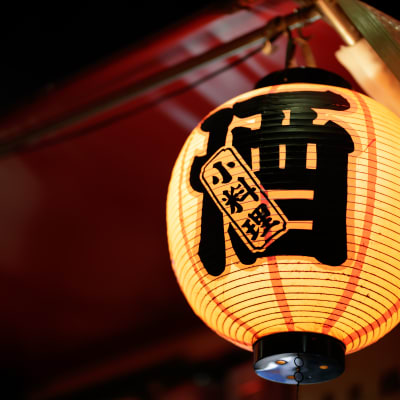

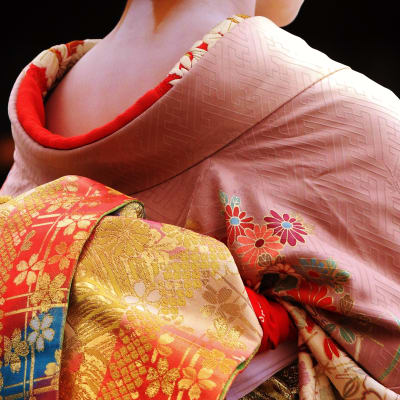
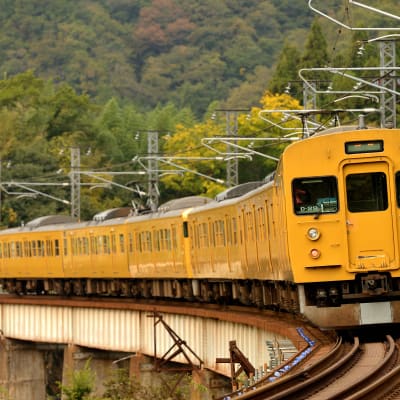

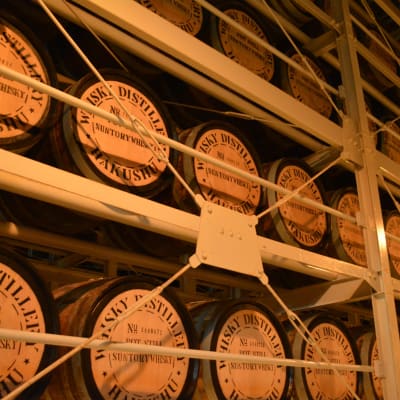





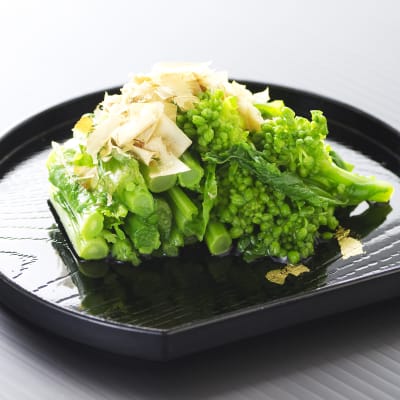
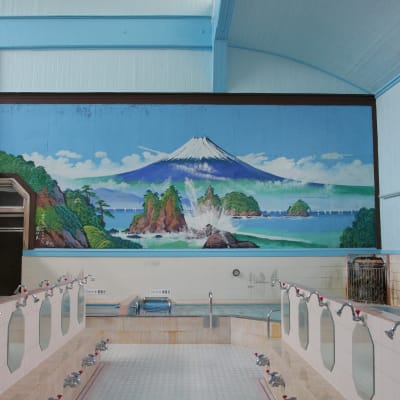








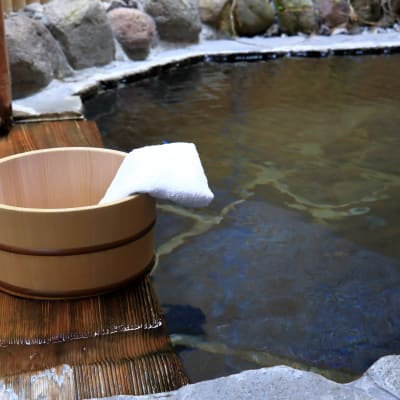



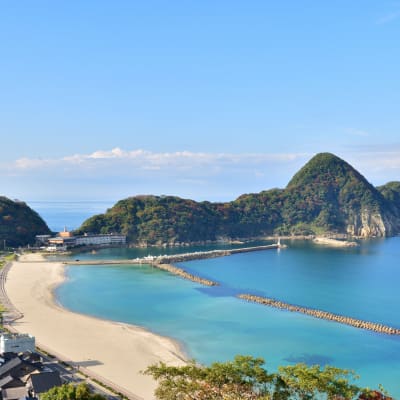



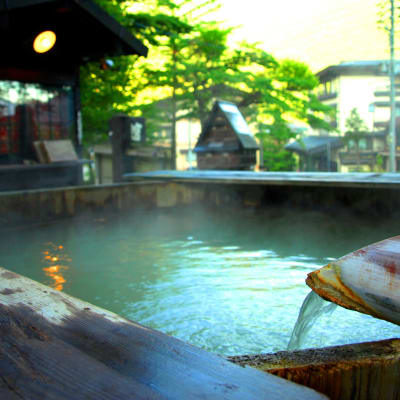




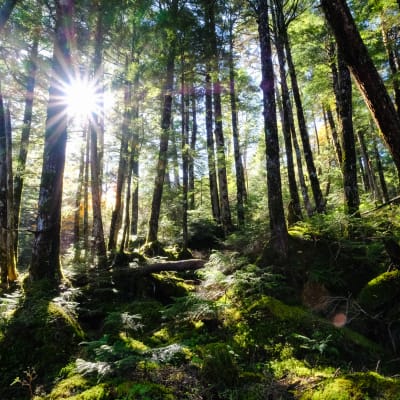
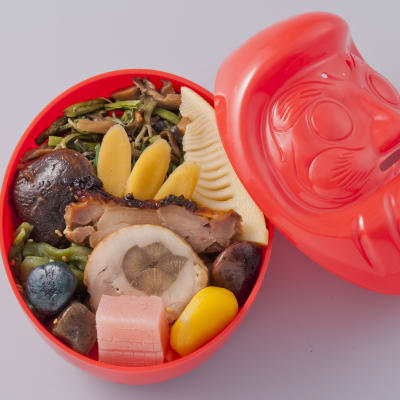

![Kengo Kuma and Japan's New Architecture [PR]](https://res-3.cloudinary.com/jnto/image/upload/w_400,h_400,c_fill,f_auto,fl_lossy,q_auto/v1584347275/story_guide/Sg109_02)
![The Art of Kimono [PR]](https://res-1.cloudinary.com/jnto/image/upload/w_400,h_400,c_fill,f_auto,fl_lossy,q_auto/v1585275405/story_guide/Sg110_main_latest)
